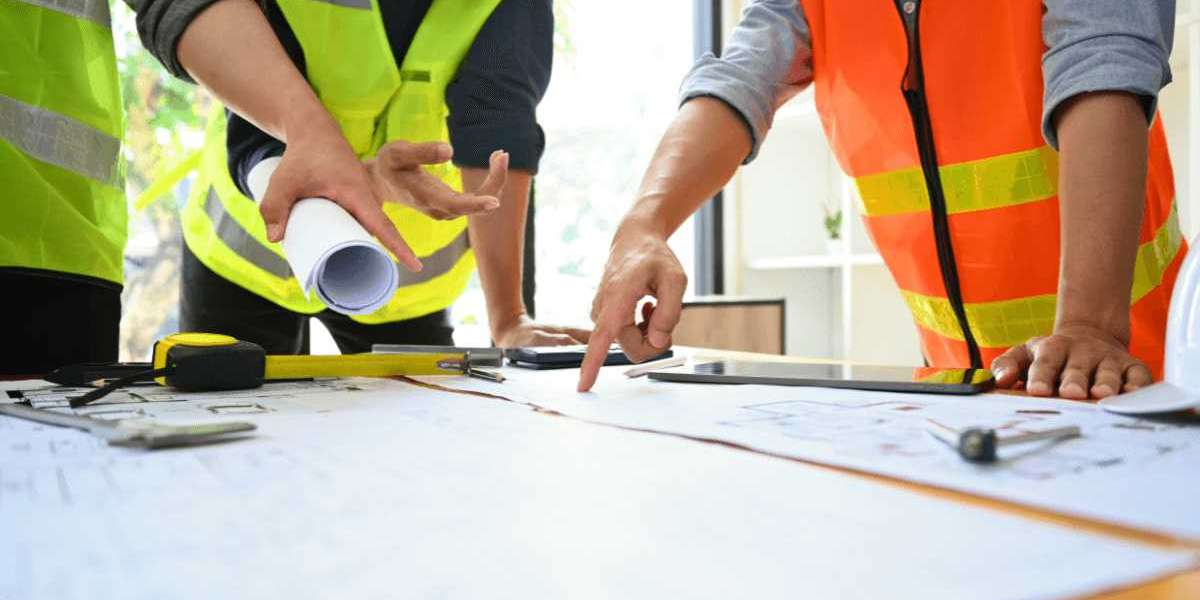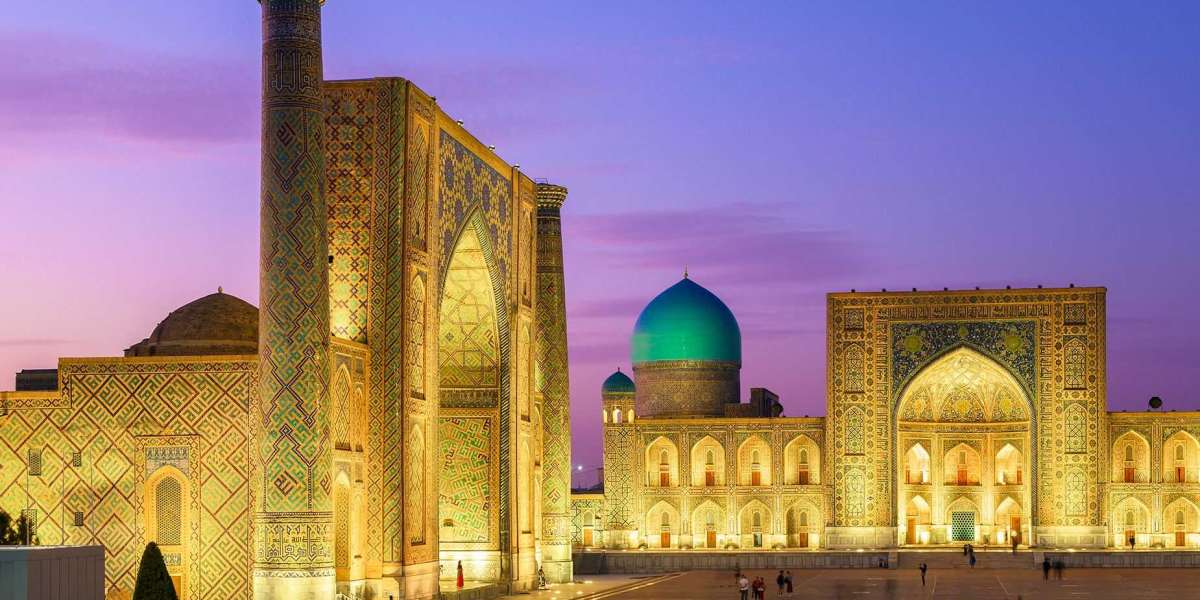Green building and Environment, Health, and Safety (EHS) consultancy play a vital role in Malaysia's construction industry, driving sustainable development and ensuring the well-being of workers. As the nation prioritizes environmental conservation and worker safety, the adoption of green building and EHS practices has gained significant momentum.
In Malaysia, green building refers to the implementation of eco-friendly and energy-efficient construction techniques, reducing the environmental impact of buildings throughout their lifecycle. These practices encompass energy and water efficiency, waste management, use of sustainable materials, and indoor environmental quality.
EHS consultancy focuses on promoting and maintaining a safe and healthy working environment in the construction sector. It ensures compliance with EHS regulations, identifies potential hazards, and implements measures to mitigate risks. EHS consultants work closely with construction companies to develop and implement safety protocols, conduct regular inspections, and provide training to personnel.
By integrating green building practices and EHS consultancy, Malaysia's construction industry aims to minimize its carbon footprint, conserve resources, and safeguard the health and well-being of construction workers. This holistic approach promotes sustainable development, increases energy efficiency, reduces operational costs, enhances occupant comfort, and mitigates environmental risks.
As Malaysia embraces the green building movement, it strives to achieve internationally recognized green building certifications such as the Green Building Index (GBI) and BREEAM Malaysia. These certifications provide benchmarks for sustainable construction and encourage continuous improvement in building design, construction, and operations.
In the following sections, we will delve deeper into the sustainable construction practices in Malaysia, the benefits of green building, and the role of EHS consultancy in green building projects in Malaysia. Together, these initiatives are shaping the future of sustainable construction and advancing Malaysia's journey towards a greener and safer built environment.
Sustainable Construction Practices in Malaysia
In Malaysia, the construction industry is taking significant steps towards sustainable development by implementing various environmentally-friendly practices. These practices aim to minimize the industry's carbon footprint and promote the efficient use of resources. Here are some key sustainable construction practices being adopted in Malaysia:
Energy Efficiency
One of the primary focuses of sustainable construction in Malaysia is energy efficiency. Building designs incorporate features such as efficient insulation, natural lighting, and energy-efficient appliances to reduce energy consumption. The use of renewable energy sources, such as solar panels and geothermal systems, is also on the rise.
Waste Management
Effective waste management is a crucial aspect of sustainable construction. Construction companies are implementing strategies to minimize waste generation, recycle materials, and properly dispose of waste. This includes segregating construction waste, reusing materials where possible, and adopting innovative techniques like precast construction to reduce waste generation.
Eco-Friendly Materials
The use of eco-friendly materials is gaining popularity in Malaysia's construction industry. Sustainable materials such as bamboo, recycled steel, and reclaimed wood are being incorporated into building designs. These materials not only help reduce the depletion of natural resources but also contribute to healthier indoor environments.
Water Conservation
Water scarcity is a pressing issue in Malaysia, making water conservation an essential aspect of sustainable construction. Buildings are being designed to minimize water usage through the installation of efficient plumbing fixtures, rainwater harvesting systems, and greywater recycling systems. This helps in reducing both the environmental impact and water bills.
Green Roof and Vertical Gardens
To combat the urban heat island effect and promote greenery, many buildings now incorporate green roofs and vertical gardens. These features provide insulation, filter air pollutants, absorb rainwater, and create a pleasant environment for occupants.
Biodiversity Preservation
Construction projects increasingly prioritize biodiversity preservation by integrating landscaping that supports native flora and fauna. This includes the creation of green spaces, retention of existing trees, and implementation of wildlife-friendly practices.
Collaboration and Education
Sustainable construction practices thrive on collaborative efforts between stakeholders, including architects, engineers, contractors, and policymakers. Awareness campaigns and educational programs are also being conducted to promote the importance of sustainable construction and encourage the adoption of green practices.
Benefits of Green Building in Malaysia
Green buildings in Malaysia offer numerous benefits, contributing to a more sustainable future and creating a positive impact on both the environment and human well-being. Here are some key advantages of adopting green building practices in Malaysia:
- Cost Savings
Implementing sustainable construction practices can lead to long-term cost savings. Green buildings are designed to be energy-efficient, reducing energy consumption and lowering utility bills. The integration of renewable energy sources such as solar panels can further reduce energy costs. Additionally, water-efficient systems and practices help conserve water resources, resulting in reduced water bills.
- Improved Indoor Air Quality
Green buildings prioritize indoor air quality to create healthier living and working spaces. Enhanced ventilation systems and the use of low-emission materials minimize the presence of harmful indoor pollutants. This ensures a healthier environment for occupants, leading to increased productivity, improved comfort, and reduced health risks.
- Reduced Environmental Impact
Green buildings significantly reduce their environmental footprint. Through the use of sustainable construction materials and practices, such as recycled and locally sourced materials, carbon emissions are minimized. Energy-efficient systems, including energy-saving appliances and efficient HVAC systems, further contribute to reducing greenhouse gas emissions. By adopting green building practices, Malaysia can make significant progress towards achieving its sustainability and climate targets.
- Enhanced Resale and Rental Value
Green buildings have a higher resale and rental value compared to conventional buildings. The growing awareness and demand for sustainable properties make green buildings more appealing to potential buyers and tenants. The long-term cost savings associated with energy-efficient features and green certifications also make green buildings financially attractive investments.
- Health and Well-being Benefits
The focus on occupants' health and well-being is a key aspect of green buildings. The integration of natural lighting, proper ventilation systems, and access to green spaces promotes physical and mental well-being. Research suggests that occupants in green buildings experience improved productivity, higher satisfaction levels, and reduced absenteeism.
Green Building Certification in Malaysia
Green building certification systems play a crucial role in promoting sustainable construction practices in Malaysia. These certifications provide recognition and validation for buildings that meet specific environmental and energy efficiency standards. The two main green building certification systems in Malaysia are the Green Building Index (GBI) and BREEAM Malaysia.
Green Building Index (GBI)
The Green Building Index is a certification program developed by the Green Building Index Sdn Bhd and the Malaysian Institute of Architects. It evaluates the sustainability performance of buildings based on several criteria, including energy efficiency, water efficiency, indoor environmental quality, and sustainable site planning and management. GBI certification provides a comprehensive assessment of a building's green features and is widely recognized in Malaysia.
BREEAM Malaysia
BREEAM (Building Research Establishment Environmental Assessment Method) is an internationally recognized green building certification system that has been adapted for Malaysia. BREEAM Malaysia assesses the environmental performance of buildings in various categories, such as energy, water, materials, and waste management. This certification system focuses on reducing the environmental impact of buildings and enhancing their overall sustainability.
These green building certification systems serve as guidelines for architects, developers, and construction professionals to design and construct environmentally-friendly buildings. By achieving these certifications, buildings demonstrate their commitment to sustainable practices and contribute to the nation's environmental conservation efforts.
Benefits of Green Building Certification
Green building certification offers a range of benefits for building owners, occupants, and the environment. Here are some key advantages:
- Energy Efficiency: Certified green buildings typically consume less energy due to the implementation of energy-saving measures. This leads to lower operating costs and reduced carbon emissions.
- Improved Indoor Air Quality: Green buildings prioritize the use of non-toxic materials, proper ventilation systems, and natural lighting, resulting in healthier indoor environments and improved occupant well-being.
- Reduced Environmental Impact: Sustainable construction practices, such as efficient waste management, use of eco-friendly materials, and water conservation, help reduce the overall environmental impact of buildings.
- Enhanced Marketability: Green building certifications, such as GBI and BREEAM, enhance the market value of properties by signaling their sustainable features and aligning with the growing demand for eco-friendly buildings.
- Health and Well-being: Green buildings prioritize occupant health and comfort by incorporating features such as daylighting, green spaces, and ergonomic designs, which contribute to higher productivity and well-being.
Role of EHS Consultancy in Malaysian Construction
In the construction industry, ensuring the safety and well-being of workers is of paramount importance. This is where EHS consultancy plays a critical role. EHS consultants provide expert guidance and support to construction companies, helping them establish and maintain safe working conditions, comply with regulations, and reduce the risk of accidents and occupational hazards.
Ensuring Worker Safety
EHS consultancy services focus on identifying and mitigating potential hazards on construction sites. Consultants conduct comprehensive risk assessments to assess the risks associated with various construction activities such as working at heights, handling hazardous materials, and operating heavy machinery. By identifying these risks, EHS consultants can develop effective safety protocols, policies, and procedures that minimize the likelihood of accidents and injuries.
Implementing Safety Measures
EHS consultants assist construction companies in implementing appropriate safety measures. This includes providing training programs on safe work practices, personal protective equipment (PPE) usage, and emergency preparedness. Consultants also conduct regular site inspections and audits to ensure that all safety protocols are being followed and identify any areas that require improvement or corrective action.
Compliance with Regulations
The construction industry is subject to numerous regulations and legal requirements related to worker safety and health. EHS consultants help construction companies navigate these regulations, ensuring compliance with national and international standards, such as the Occupational Safety and Health Act (OSHA) and ISO 45001. By staying updated on the latest regulations, EHS consultants can ensure that construction companies meet the necessary legal requirements.
Promoting Health and Well-being
EHS consultants also focus on the health and well-being of workers in the construction industry. They help companies implement health promotion programs, including initiatives related to ergonomic practices, mental health support, and preventive healthcare measures. By prioritizing workers' health, EHS consultants contribute to a positive working environment and improve overall well-being.
Building Trust and Reputation
By investing in EHS consultancy services, construction companies demonstrate their commitment to worker safety, health, and well-being. This can enhance their reputation in the industry and build trust with stakeholders, including employees, clients, and regulatory bodies. Additionally, companies that prioritize EHS consultancy are more likely to attract and retain skilled workers who value their own safety and want to work for organizations that prioritize it as well.
Challenges and Opportunities in Green Building and EHS Consultancy
Green building and EHS (Environment, Health, and Safety) consultancy in Malaysia's construction industry face various challenges and opportunities. These factors play a crucial role in shaping the future of sustainable development and worker safety practices. Let's explore some of the key challenges and opportunities:
Challenges:
- Limited Awareness and Understanding: One of the major challenges is the lack of awareness and understanding among stakeholders regarding the benefits and importance of green building and EHS consultancy. Many construction companies and individuals are yet to fully realize the positive impact these practices can have on the environment and worker well-being.
- Cost Considerations: Implementing green building practices and engaging EHS consultants can sometimes be perceived as costly. The initial investment required for sustainable materials, technologies, and consultancy services may deter some developers and contractors from adopting these practices.
- Regulatory Barriers: Inconsistent regulations and policies related to green building and EHS consultancy pose challenges for industry professionals. Developers and builders may find it challenging to navigate and comply with complex and frequently changing regulations.
- Limited Supply Chain Support: Availability and accessibility of sustainable construction materials and technologies in the local market can be limited, hindering the widespread adoption of green building practices. The construction industry needs a robust supply chain that can provide adequate resources to support sustainable development initiatives.
Opportunities:
- Rising Demand for Sustainability: The increasing awareness of environmental conservation and sustainable practices creates a significant opportunity for the growth of green building and EHS consultancy in Malaysia. As more individuals and organizations recognize the long-term benefits of sustainable construction, the demand for green buildings and related services is expected to rise.
- Government Support and Incentives: The Malaysian government plays an active role in promoting sustainable development and has introduced various initiatives to support green building practices. Incentives such as tax benefits and grants are provided to encourage developers and builders to adopt eco-friendly approaches.
- Market Differentiation: Green buildings can offer a competitive advantage in the market by showcasing their environmental commitment and providing healthier and more sustainable living or working spaces. The market recognition and branding associated with green buildings attract environmentally conscious clients and tenants.
- Technological Advancements: Rapid advancements in sustainable construction technologies provide opportunities for innovation and cost optimization. From energy-efficient systems to smart building management, technology enables the integration of sustainable practices into the construction process.
By overcoming the challenges and capitalizing on the opportunities, the construction industry in Malaysia can further embrace green building and EHS consultancy. Collaborative efforts among stakeholders, increased awareness, and continuous support from the government will pave the way for a more sustainable and safer future in the built environment.
Future of Green Building and EHS in Malaysia
As Malaysia continues to prioritize sustainability and environmental conservation, the future of green building and EHS consultancy appears promising. Various factors contribute to the potential growth and innovation in these areas.
Growing Awareness and Demand
- Increasing awareness about climate change and the need for sustainable development is driving the demand for green buildings in Malaysia.
- Consumers, businesses, and the government are recognizing the long-term benefits of energy-efficient and environmentally friendly structures.
Government Support and Regulations
- The Malaysian government has introduced policies and regulations to support green building initiatives and encourage industry players to adopt sustainable practices.
- The Green Building Index (GBI) and BREEAM Malaysia certification systems provide frameworks for evaluating and certifying green buildings.
Technological Advancements
- Advancements in construction technology enable the implementation of innovative and eco-friendly solutions.
- The use of renewable energy, smart systems, and sustainable materials is expected to become more prevalent in future green building projects.
Collaboration and Knowledge Sharing
- The sharing of best practices and successful case studies among industry players fosters collaboration and encourages the adoption of green building practices.
- Business networks, industry associations, and professional conferences facilitate the exchange of knowledge and ideas.
Integration of EHS Consultancy
- The importance of worker safety and health in the construction sector is leading to a greater emphasis on EHS consultancy.
- EHS consultants play a crucial role in ensuring compliance with regulations, implementing safety protocols, and promoting the well-being of workers.
Financial Incentives
- Financial incentives and tax benefits provided by the government incentivize the adoption of green building practices.
- Building owners and developers can enjoy cost savings through reduced energy consumption and maintenance expenses.
Conclusion
Green building and EHS consultancy play a crucial role in driving sustainable construction practices in Malaysia. By adopting eco-friendly materials, implementing energy-efficient solutions, and prioritizing waste management, the construction industry in Malaysia is actively contributing to environmental conservation and reducing the carbon footprint.
The benefits of green buildings are significant, not only in terms of cost savings but also in improving indoor air quality and creating healthier living and working environments. With green building certification systems like the Green Building Index (GBI) and BREEAM Malaysia, developers and construction companies are encouraged to incorporate sustainable design and construction practices into their projects.
Furthermore, EHS consultancy ensures the safety and well-being of workers in the construction sector. By providing expert guidance on environment, health, and safety regulations, EHS consultants contribute to minimizing workplace hazards and promoting a culture of safety.
Moving forward, there are both challenges and opportunities in promoting green building and EHS consultancy in Malaysia. Overcoming financial barriers, increasing awareness among stakeholders, and fostering innovation will be key to furthering sustainable construction practices.








